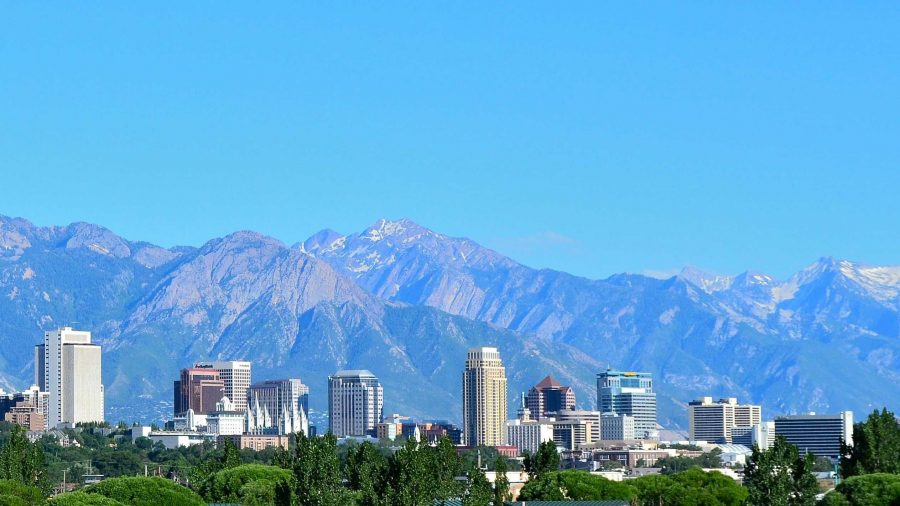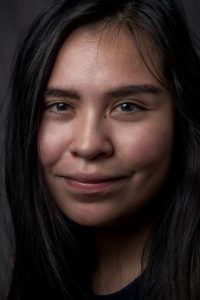On Monday, July 15, Salt Lake City’s mayoral candidates gathered for a debate hosted by the Pioneer Park Coalition. Broadcast by KSL-TV and live-streamed on Facebook, the forum was moderated by radio host Doug Jones.
All eight candidates — Jim Dabakis, Luz Escamilla, David Garbett, Richard Goldberger, Rainer Huck, David Ibarra, Erin Mendenhall and Stan Penfold — appeared to convene for another round of articulating their policies and values to voters in their bids for mayor. Unlike previous debates, the format of this debate restricted answers to be under 45 seconds.
At the beginning, candidates introduced themselves and their respective backgrounds to viewers. Dabakis, a former state senator, noted his time during the legislative sessions at the Capitol. He mentioned working with the state’s tall budget, applying this experience as a strength that would make him skilled enough to oversee Salt Lake City’s annual $330 million budget as mayor.
Ibarra, a prominent Salt Lake City businessman, said that as mayor, he wants to “do something, not be something.” Several other candidates, including Goldberger and Huck, emphasized their distance from politics, and expressed disdain for the label of “politician.” Inversely, candidates like Mendenhall and Escamilla believe that their expertise grounded in politics is vital for an effective mayor to lead the city.
Jones raised the subject of homelessness to the candidates. Penfold called Salt Lake City “a deeply compassionate community,” and advocated for the city to employ the Housing First model, a popular social policy that attracted attention from other U.S. cities tackling the matter. This model reduces requirements for people experiencing homelessness to receive housing. Dabakis offered that mixed private and public efforts, centered on collaboration between non-profits, the city and philanthropists, could combat the problem.
Some candidates also offered their visions for downtown revitalization.
Penfold said that tightened liquor laws contributed to a change in the character of downtown, and also claimed that a shift in the city’s transportation infrastructure would be one straightforward solution. Mendenhall said that the city is missing out on a thriving tech industry, which instead goes to Silicon Slopes, an area on the Wasatch Front adorned with burgeoning startup companies. Ibarra and Huck both agreed autonomous car-systems will eventually reign as the leader in transit for Salt Lake City citizens.
Jones next brought up the Salt Lake City Police Department’s workforce. He mentioned that Salt Lake City hired 80 new police officers and lost the same amount of officers during the past year.
Huck pointed out that Salt Lake City police killed 19 people last year and advocated for a smaller police department and higher salaries for a competitive career field. Escamilla and Mendenhall both wanted to promote community policing and establish ongoing engagement and trust between officers and residents. “I love our police officers,” Dabakis said. “They do a good job despite the circumstances.” He proposed raising the wages within SLCPD’s force.
When asked about the Inland Port, all but two candidates, Penfold and Goldberger, vowed to continue the city’s lawsuit against the Inland Port Authority. Garbett wants to encourage the voice of the community on the Inland Port but in a “non-violent” fashion, referring to last week’s protests at the city’s commerce building.
Jones asked candidates what their relationship with the future state governor would look like if they were elected mayor. (The gubernatorial election will be held in 2020.)
“Get prepared, bring something to the table and have a good discussion,” Ibarra said. “You can be tough without being mean,” Mendenhall said, mentioning that her identity as a Democrat and woman in Salt Lake City informs her ability to show up for negotiations in a deep-red state with split views on many issues. Goldberger believes the dynamic can be symbiotic, bringing up his campaign’s slogan: “government by common sense.” Garbett wants to mend the partnership between Salt Lake City and the state government with economic projects like the 2030 Winter Olympics and a crumbling city infrastructure, which captures interest for both parties.
At the end of the debate, candidates wrapped up with closing statements. “I know how to read a spreadsheet, I know how to make sure the city is being well-run,” Dabakis said. “I really believe we can be a world-class city. The main thing we need to tackle is air quality,” Garbett said.
This was the only televised debate before the primaries are held on August 13. Afterward, only two candidates will remain in the race until the general election in November.
m.spottedelk@dailyutahchronicle.com



